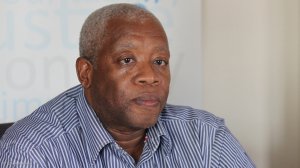This year is the year of the local government elections. This means that, between May and August, we will know whether shifts in voter sentiment, significant or not, have occurred or not. In particular, what will occupy the popular imagination as well as the attention of political commentators and reporters are the electoral fortunes of the African National Congress (ANC) in relation to its main competitors, the Democratic Alliance (DA) and the Economic Freedom Fighters (EFF).
While it is not always wise to compare national and provincial elections to local government elections, it is sometimes wise to project forward the outcomes of one election with the aim of understanding what the results and voter sentiment may be telling us about future elections. In this regard, a few things are worth noting about the 2014 general election. For starters, the ANC, in 2014, won just three more seats in the National Assembly than it did in the first democratic elections in 1994. Between 2004 and 2014, the ANC’s national support fell from 69.69% to 62.15%. In terms of seats in the National Assembly, the ANC lost 30 seats between 2004 and 2014. Compared with 2009, the number of people who voted for the ANC fell by about 200 000 in 2014.
But it is the outcome of the Gauteng election which caught my eye. In this province, the ANC’s support fell from 64.04% in 2009 to 53.59% in 2014. Another interesting thing about the 2014 election outcome in Gauteng is the fact that, in the metropolitan areas of Johannesburg, Tshwane and Ekurhuleni, the ANC fell by an average of about 10%. What this suggests is the possibility that the ANC may be losing ground among urban voters.
This, going forward, may be important in two respects: first, shifts in population dynamics are beginning to show that the future of South Africa is, in terms of population numbers, more urban than rural. This means that, unlike Zimbabwe’s Zanu-PF, the ANC will in future struggle to hold on to significant majorities if it thinks it can rely on the rural vote.
Another thing that is important is that, in terms of access to technology and, therefore, access to information, the sentiments of voters in the rural areas may increasingly mirror the feelings of their urban counterparts. Second, this means that the contest for the metropolitan areas will most probably be fiercer than in the 2011 local government elections. In this respect, the contest for Nelson Mandela Bay will be quite intriguing. When it comes to the contest for the metropolitan areas of the country, we must remember that the ANC lost support in all the eight bigger (in terms of budgets) metropolitan municipalities and, in Nelson Mandela Bay, it fell below 50% in 2014.
My provisional assessment is that I would be surprised if the ANC won an absolute majority in Nelson Mandela Bay, or if it lost Johannesburg, Tshwane or Ekurhuleni. If the ANC suffered an erosion in support in these three metros, I will not be surprised at all.
This brings me to what I think may be differences that are not unimportant when we compare this year’s local government elections with the elections five years ago. Five years ago, there was no EFF and Helen Zille was the leader of the DA. In its first election, in 2014, the EFF won 6.3% of the national vote. The question is whether it has the momentum to steal votes from the ANC and/or the DA this year, since an analysis of election results between 2004 and 2014 suggests that parties that are left of centre, that is, parties such as the ANC, the United Democratic Movement and the Congress of the People may suffer a flow of votes to the left of the ANC.
But, if the 2014 election is anything to go by, the black middle class, the legendary ‘clever Blacks’, may be contested terrain for the EFF and the DA. In the metropolitan areas of Gauteng, the DA and the ANC will be faced with the challenge of preventing losses to the EFF. In fact, as far as losses from the ANC to the DA are concerned, the EFF may become an inconvenience to the DA where the DA had the potential to grow at the expense of the ANC.
But what the EFF must look out for is the potential to be undermined by Mmusi Maimane in relation to black voters. But Maimane may be undermined by the EFF’s messaging on the relationship between race and inequality, which seems to resonate more with black people than the DA’s still ambiguous all-things-to-all-races approach.
In the end, the results will be about the relationship between perception, the challenges of incumbency, legitimacy, resources and organisational capacity.
Edited by: Martin Zhuwakinyu
Creamer Media Senior Deputy Editor
EMAIL THIS ARTICLE SAVE THIS ARTICLE
To subscribe email subscriptions@creamermedia.co.za or click here
To advertise email advertising@creamermedia.co.za or click here












